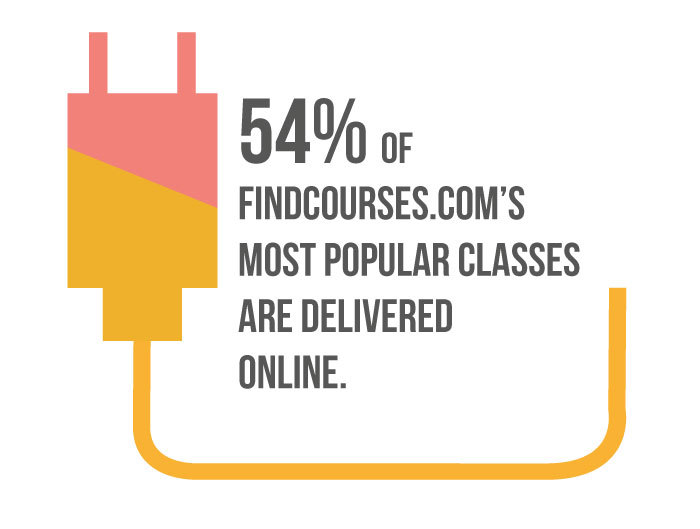Technology As A Training Resource And American Training Companies
Findcourses.com surveyed 250 of the top professional training providers in the United States. Across the board, the majority of U.S. training providers ranked the use of technology among the least important factors for success as a training provider.
The survey included 100 top-ranked training companies based in the United States, ranging from small privately owned companies to non-profit organizations and large public enterprises.
The U.S. training industry is not alone in its aversion to adapting its programs to eLearning. Of the most popular 50 professional training courses listed on Findcourses’ UK site, over 50% are delivered online. Yet when surveyed, only 33.3% of UK training providers planned to put focus on their eLearning and blended learning programs. In addition to being adverse to developing technology in course delivery, 70% of UK training providers surveyed still collected course reviews using a pen and paper system.
How Does Technology Fit Into Professional Development?
Despite the perceptions of training companies, technology has absolutely changed the way we learn, explore, and develop.
The online learning industry was predicted to grow to a $107 billion industry in 2015 by Forbes magazine. When you look at the opportunities provided by online learning courses and MOOCs (Massive Open Online Courses), it’s clear that this learning revolution is here to stay. Where education was previously just out of reach, millions of people use online resources to develop their skills each day.
Being open to using technology in professional training can have more applications than an online platform for delivering courses. Simply improving online marketing can make a tremendous difference in the number of potential participants enrolling in a course. Online reviews are proving just as significant in marketing professional training as they are in marketing a product online. In a recent Findcourses study of the conversion rate of 2600 courses, conversion being from clicking on a course to contacting the training provider, the average conversion rate for courses listing reviews is 25.4% while the site average for courses is a 7% conversion rate.
MOOCs And Online Learning Takes Off In Corporate Training
The accessibility and affordability of online training programs present obvious benefits to companies needing to train many employees at once – and with as little inconvenience as possible. Flexible online courses and MOOCs offer high-quality learning opportunities at a lower cost to the company and with added scheduling flexibility for employees. This year, an estimated 8% of companies used MOOCs and 77% used online alternatives for employee development, according to eLearning Industry.
The great majority of employers are open to using MOOCs (Massive Open Online Courses) for professional development purposes of training employees on specific skill sets according to a study by the International Review of Research in Open and Distance Learning. MOOC providers have taken notice of MOOCs’ role in professional development noting approximately two thirds of those enrolling in courses are currently employed, according to the same study.
How Companies Utilize Online Education
How companies are using eLearning for development is undergoing a period of experimentation. Building talent pipelines through top-performing MOOC participants, inducting brand-new employees to the company, or developing the capabilities of current employees are all applications of eLearning major companies are trying out. The affordability and ability of online courses to cater to a large number of participants allows for experimentation in how learning and development looks in the 21st century workplace with minimal risk.
This year, Findcourses has switched its internal learning and development scheme from in-house trainers to online courses chosen by employees to match their area of interest. This move is anticipated to help employees differentiate their skills-sets to bring more value to the organization. We’ve begun our trial year, but if it proves valuable, online courses at the company will be here to stay.
So Why Is The Training Industry So Technology-Averse?
Change can be difficult - and American training companies maintain that the benefits of traditional courses outweigh the benefits of highly accessible, highly affordable online solutions. Personally, we're interested in seeing the results of next year's survey.









